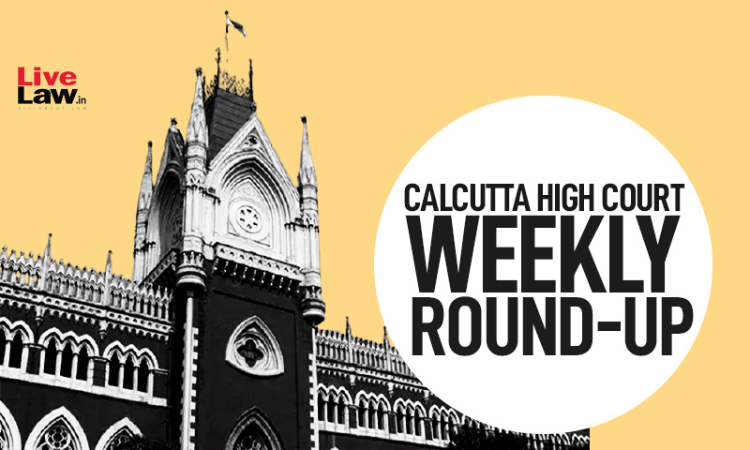Calcutta High Court Weekly Round Up: June 20 To June 26, 2022
Aaratrika Bhaumik
27 Jun 2022 11:00 AM IST

Next Story
27 Jun 2022 11:00 AM IST
Nominal Index [2022 LiveLaw (Cal) 248 - 2022 LiveLaw (Cal) 257]In the matter of : Ved Prakash Arya v. State 2022 LiveLaw (Cal) 248Ramesh Malik & Ors v. The State of West Bengal & Ors 2022 LiveLaw (Cal) 249Sk. Manowar Ali & Ors v. The State of West Bengal & Ors 2022 LiveLaw (Cal) 250Salem Khan v. The State of West Bengal & Ors 2022 LiveLaw (Cal) 251Ramesh Malik & Ors v....
